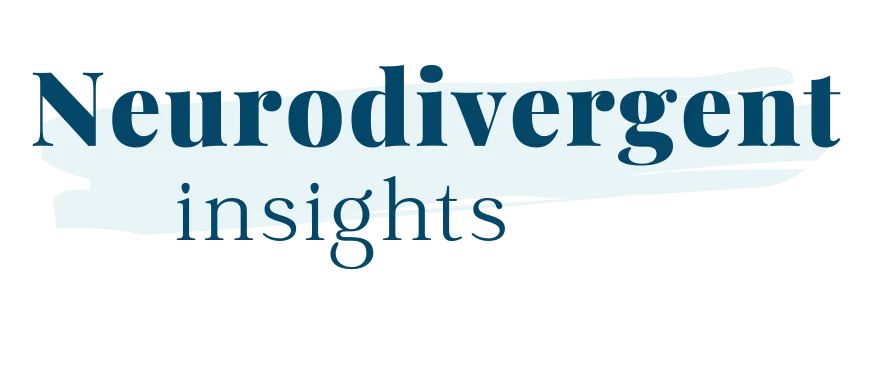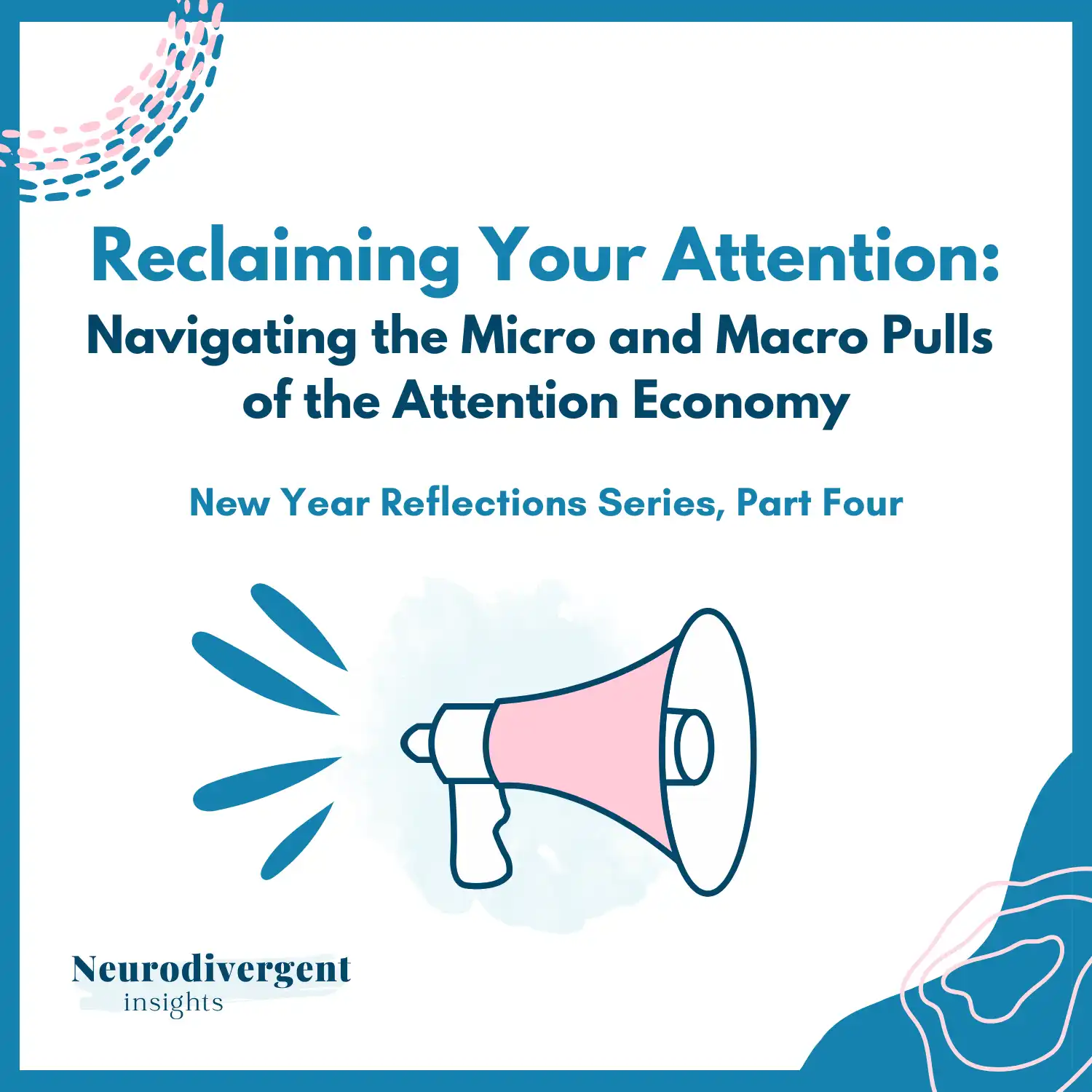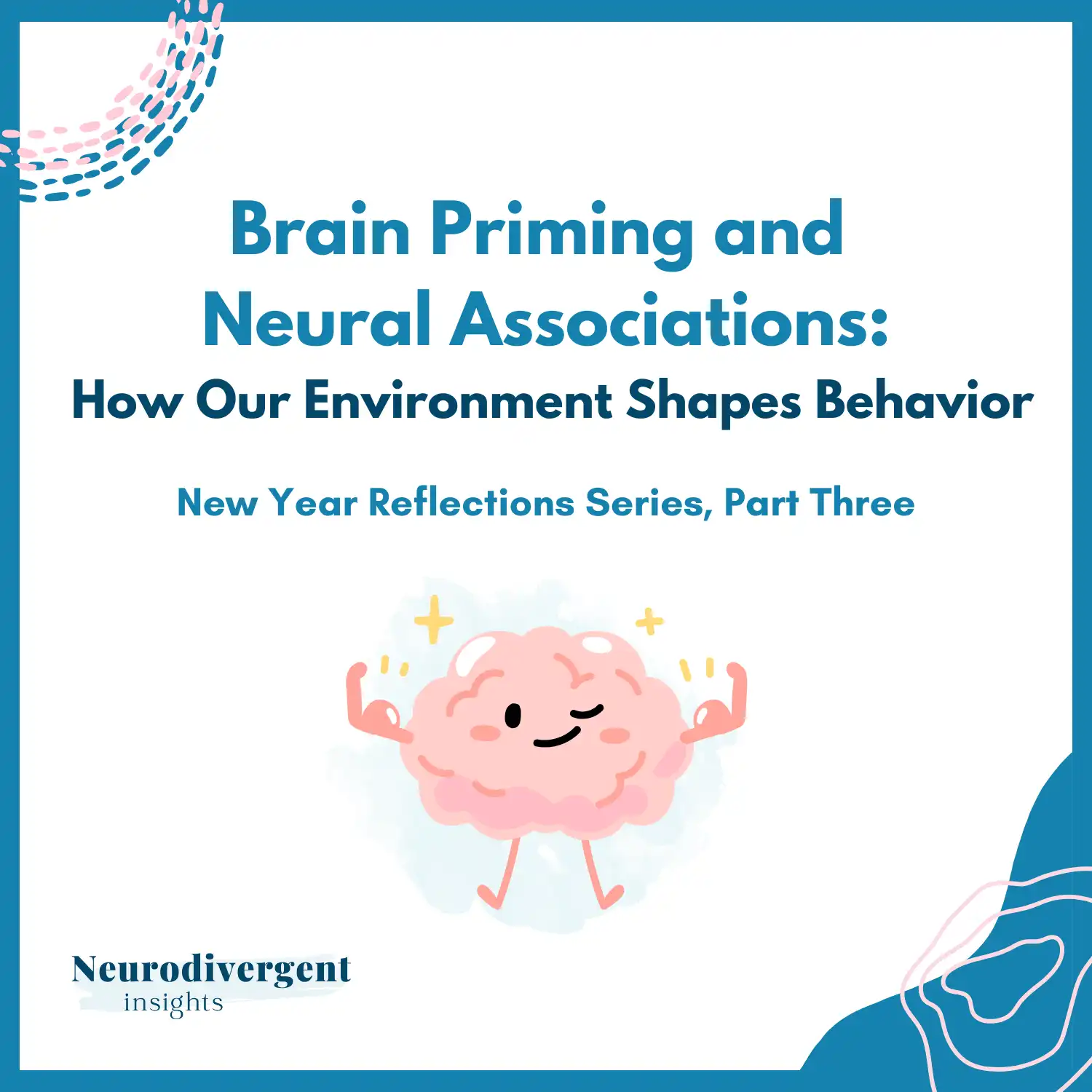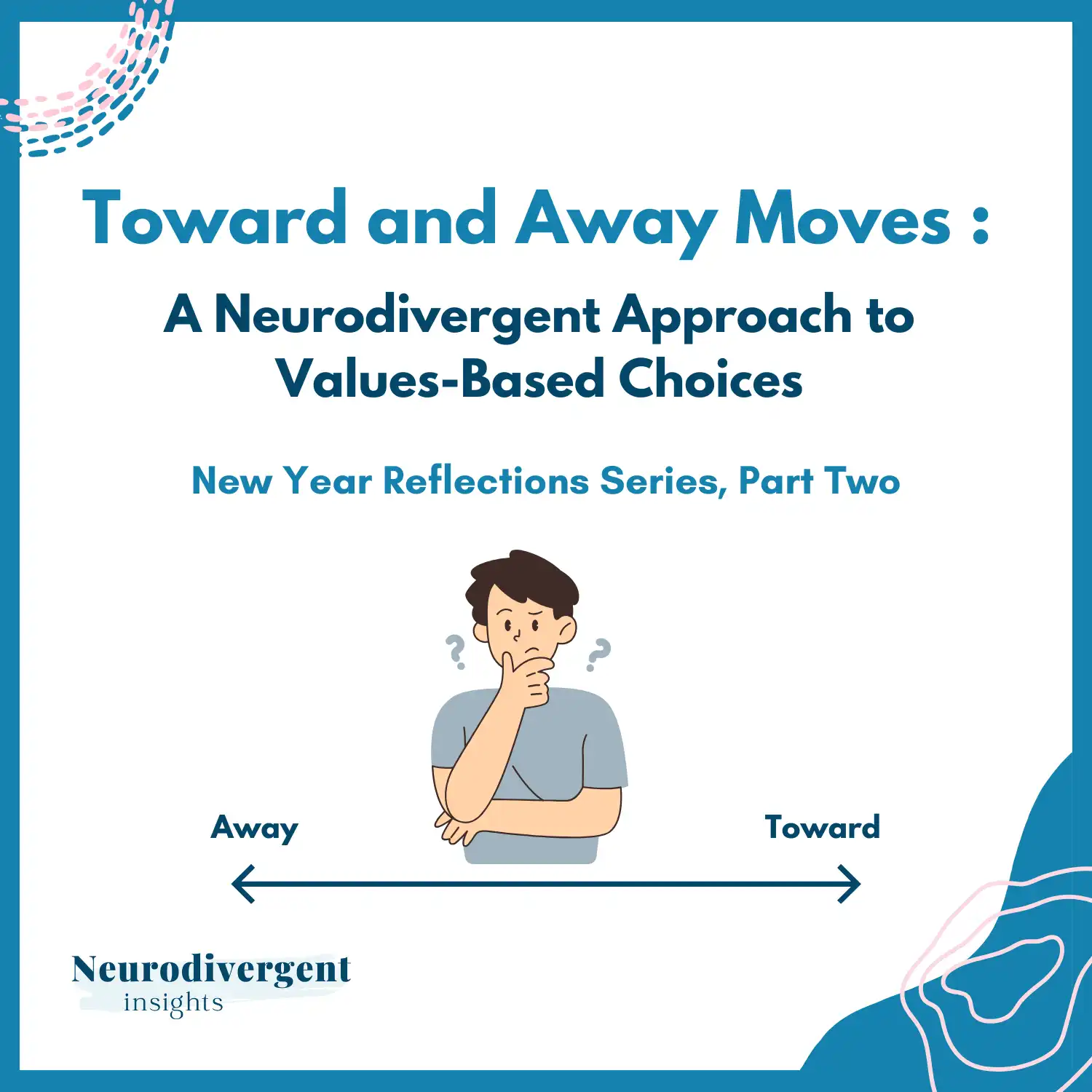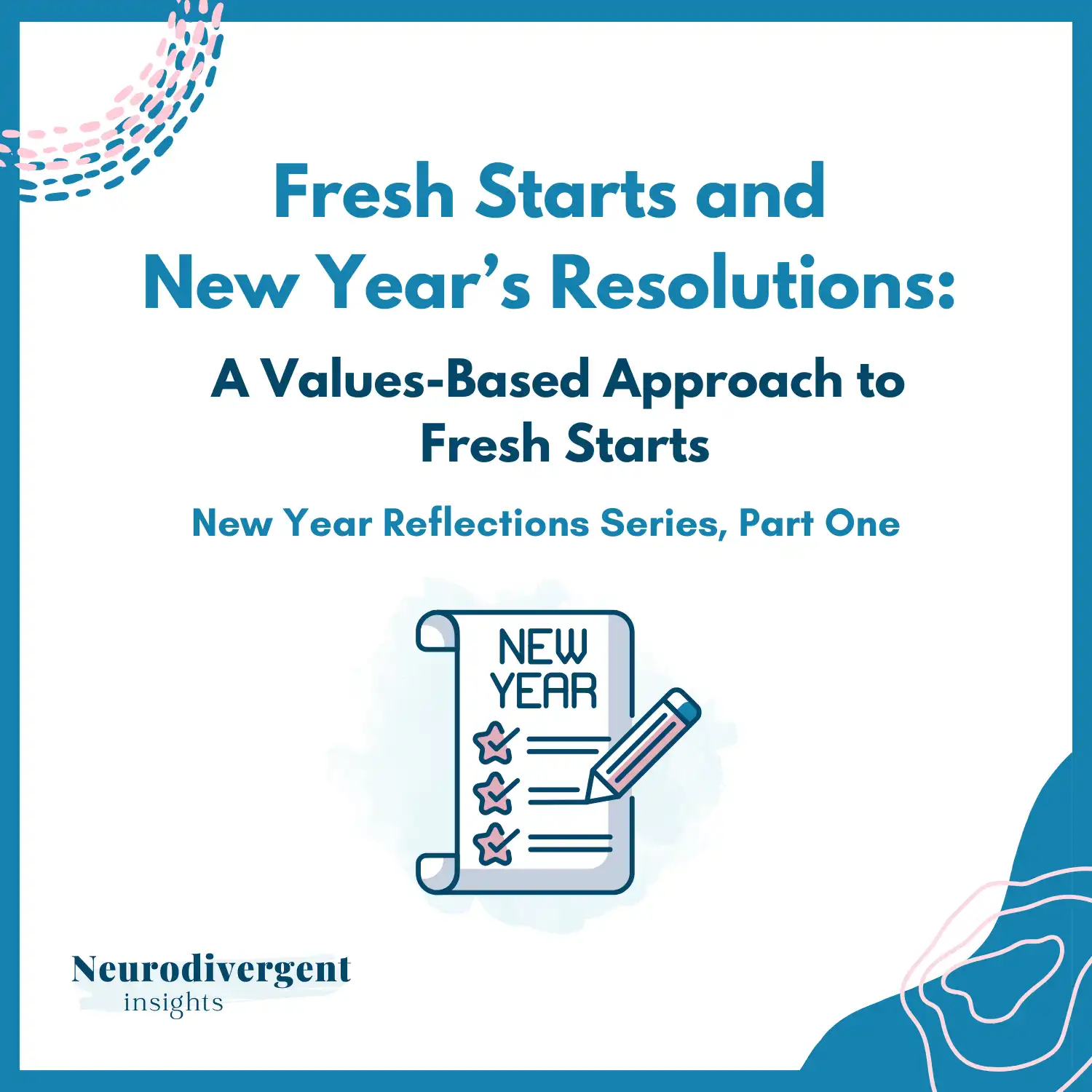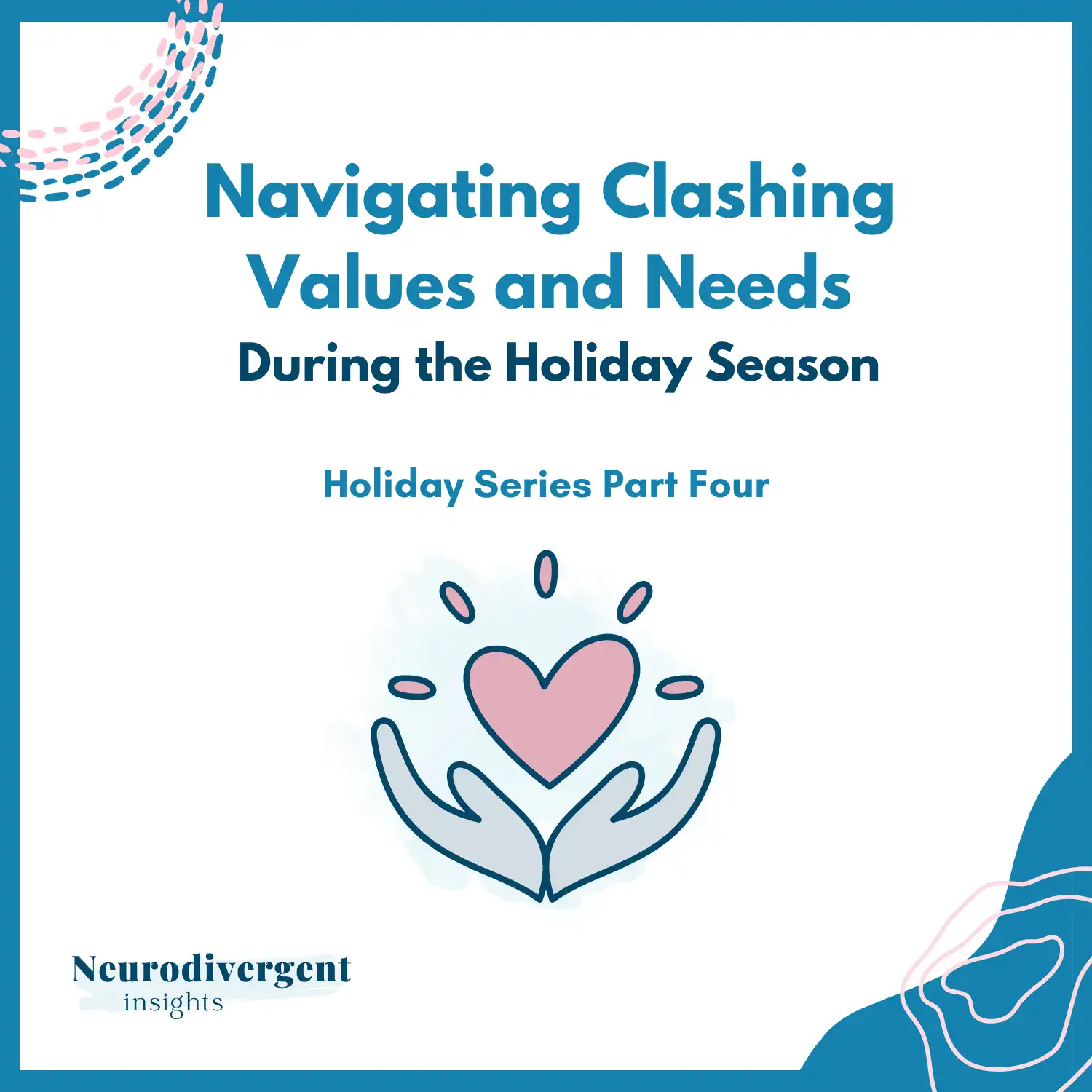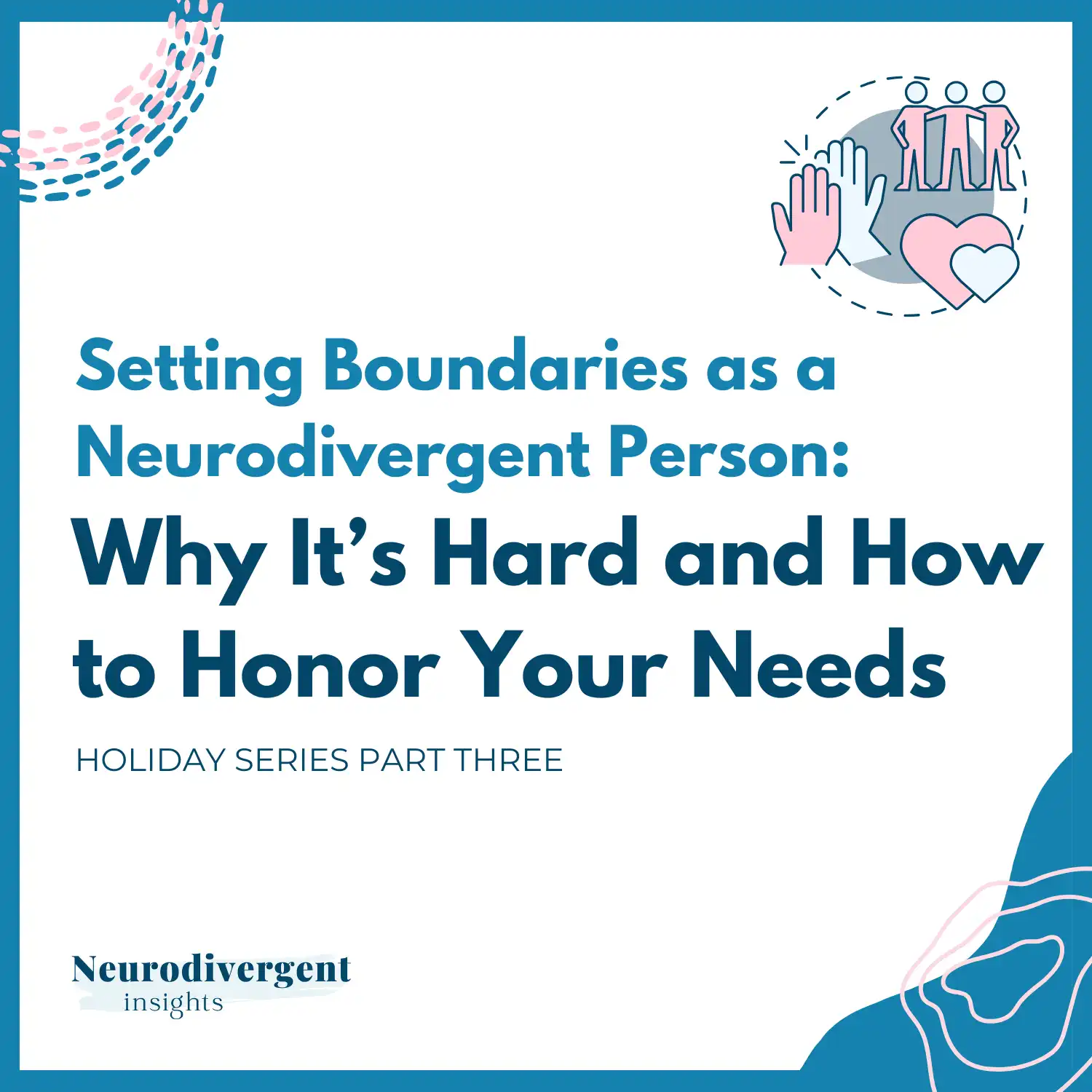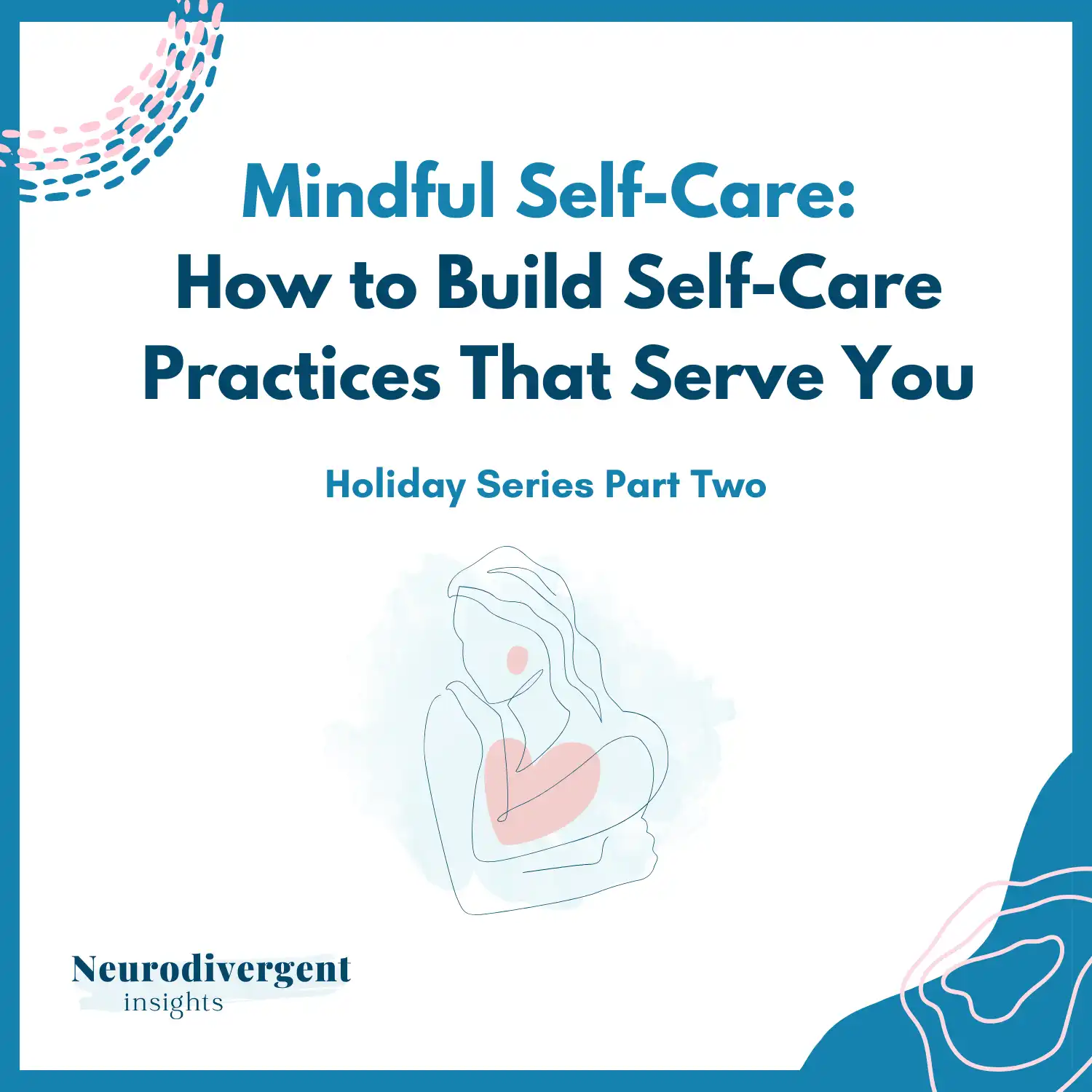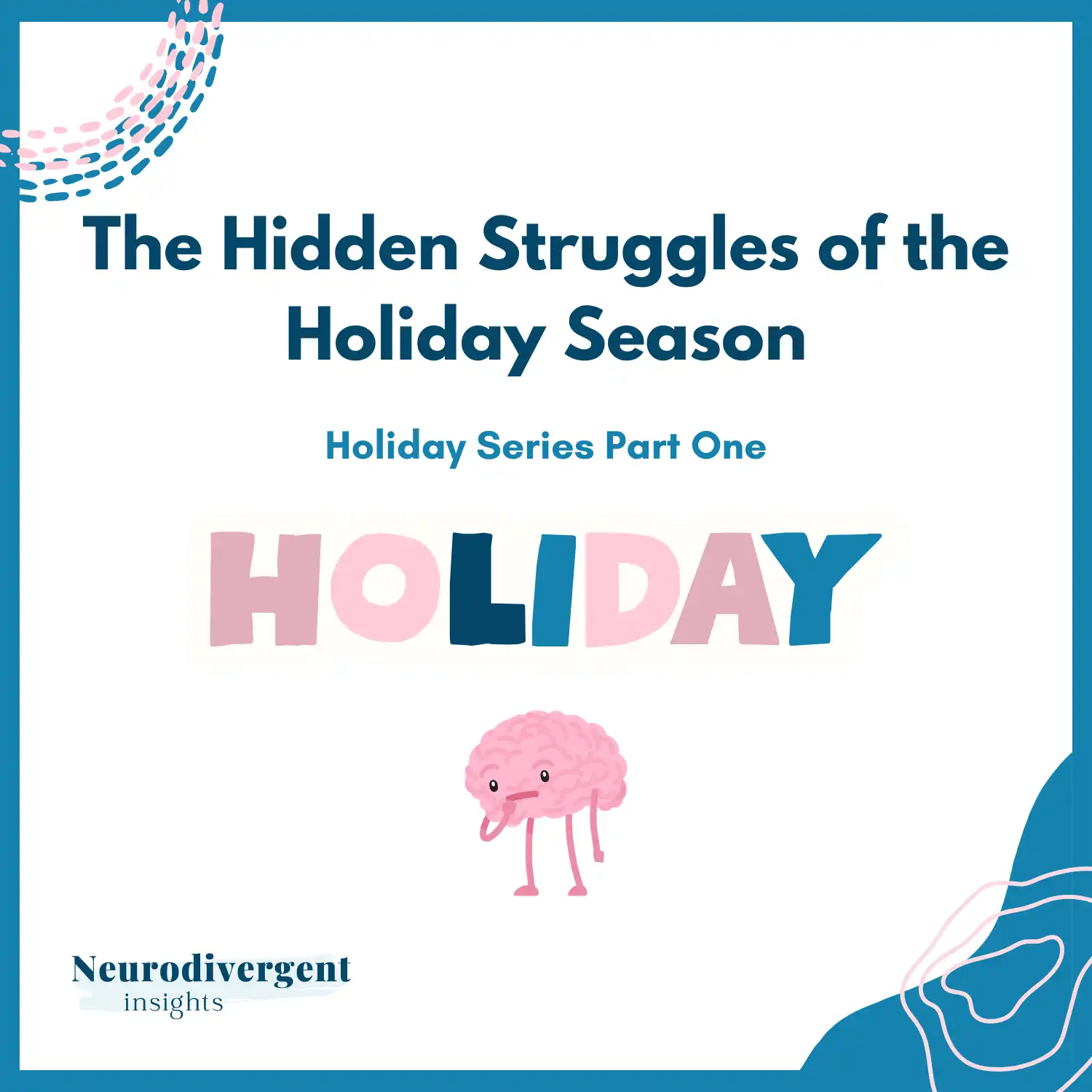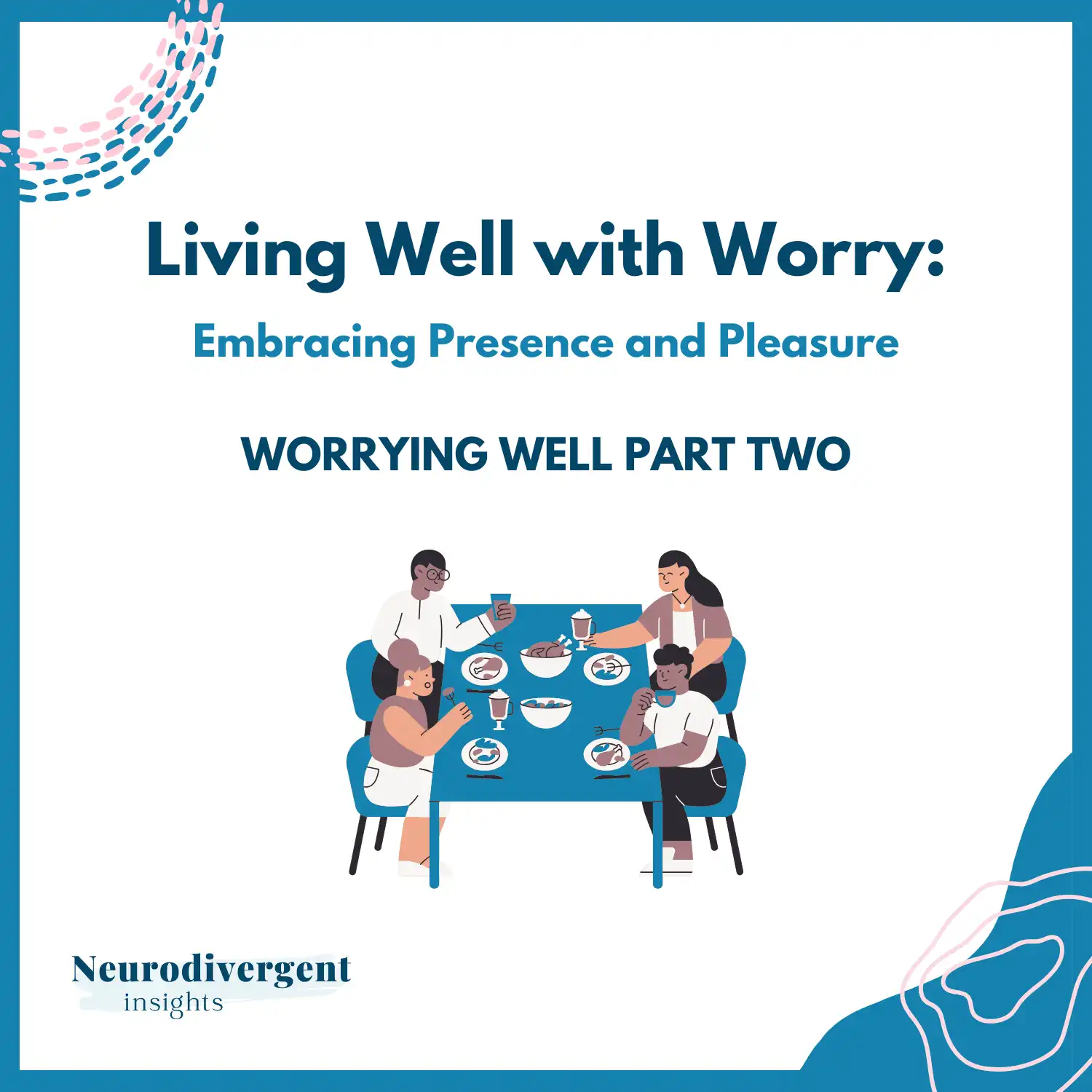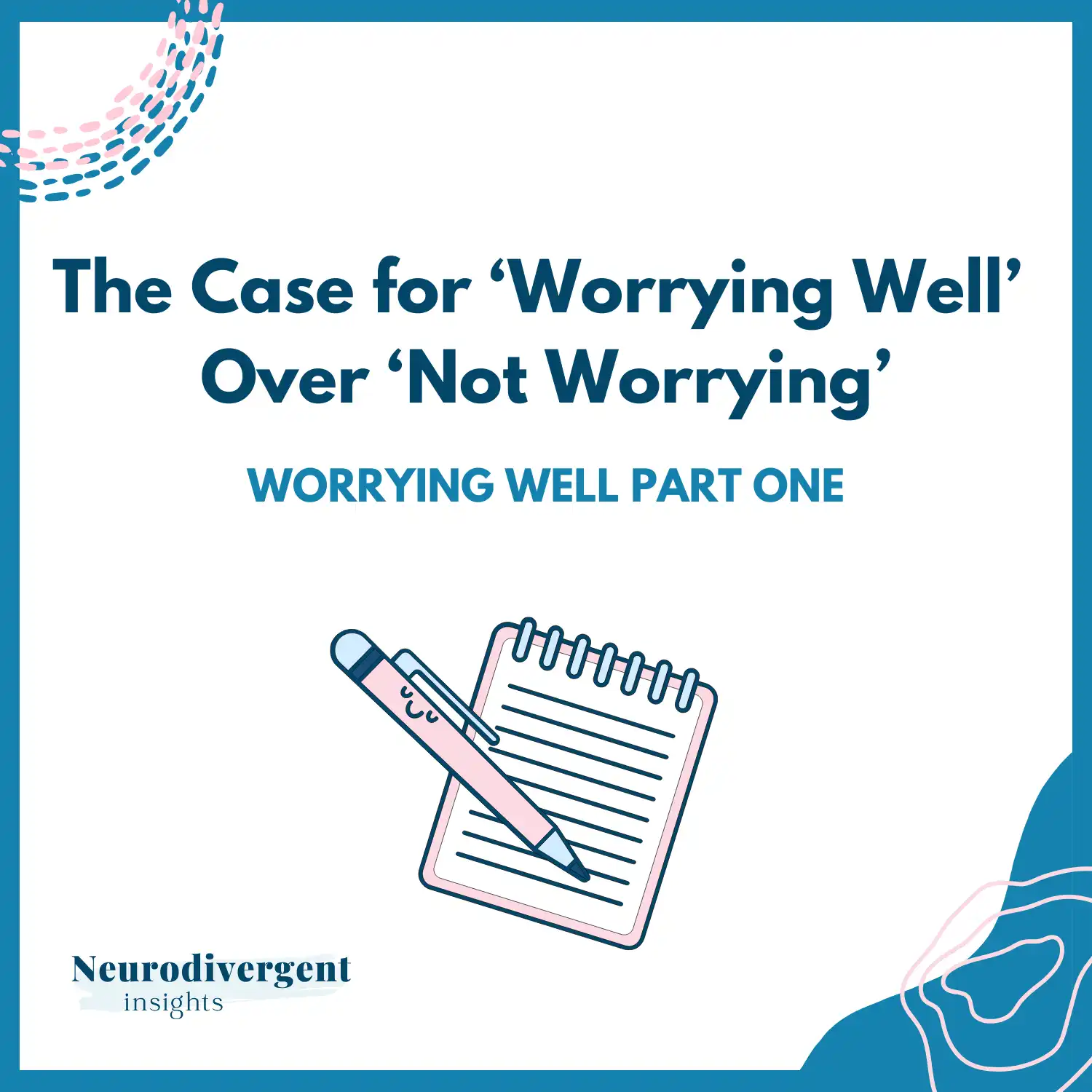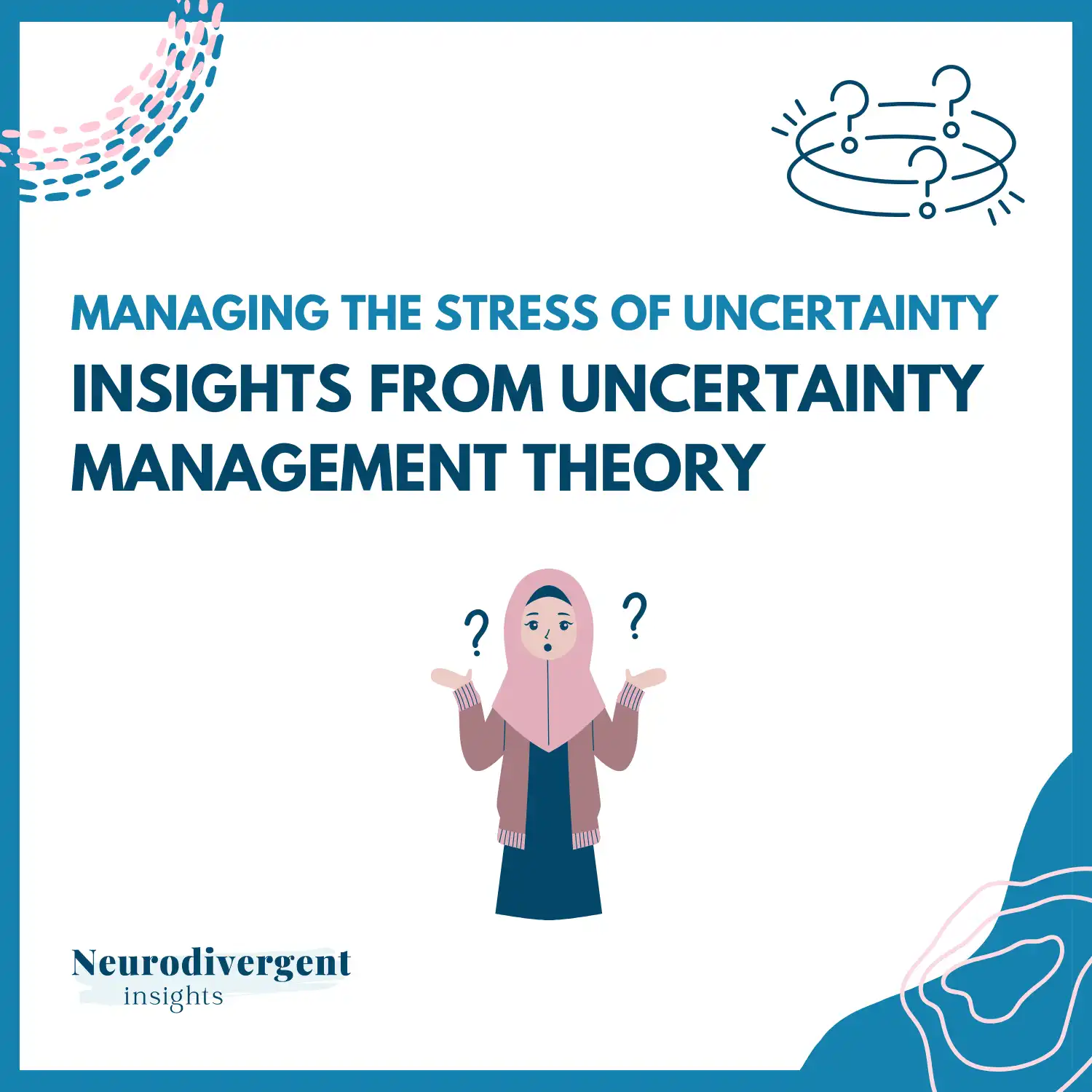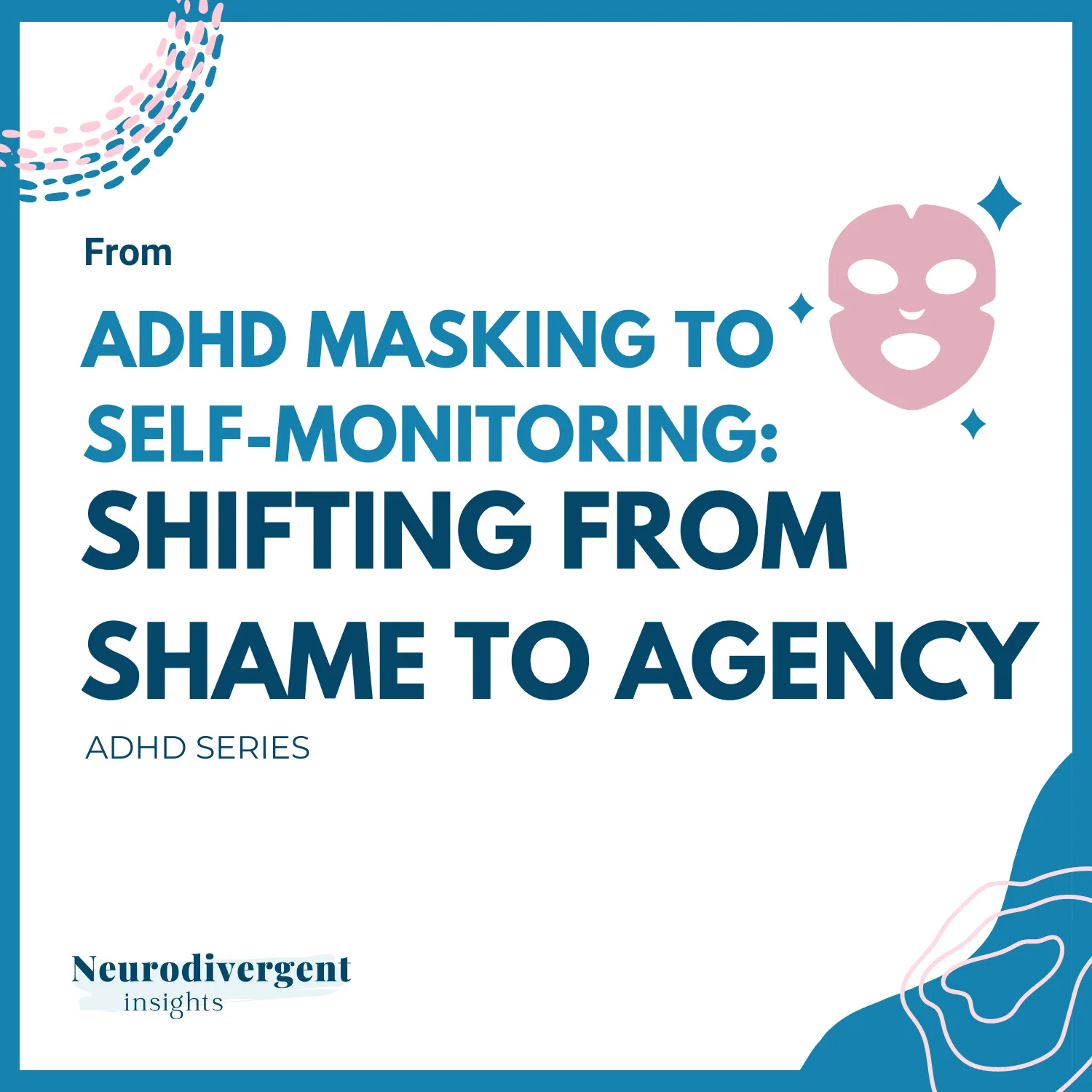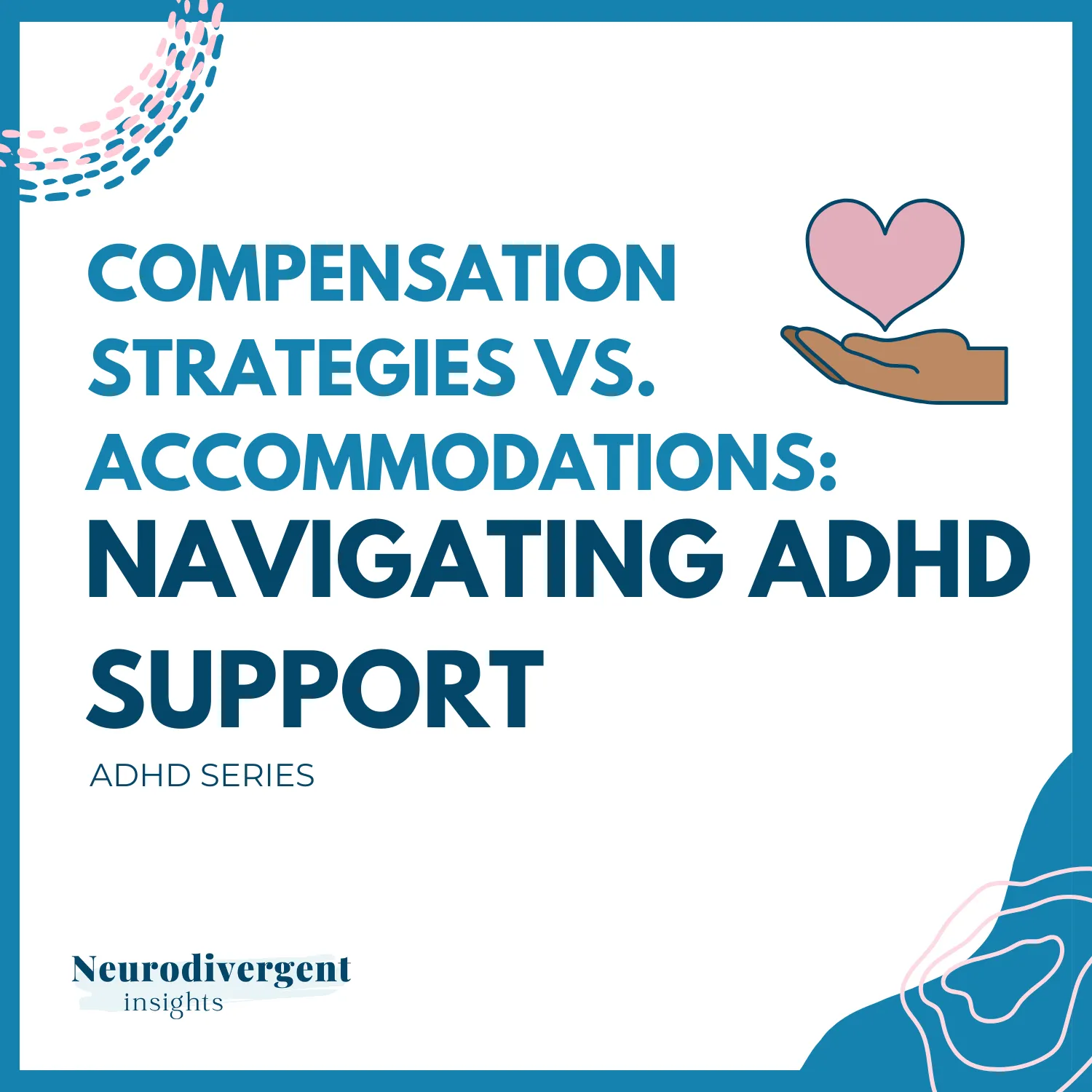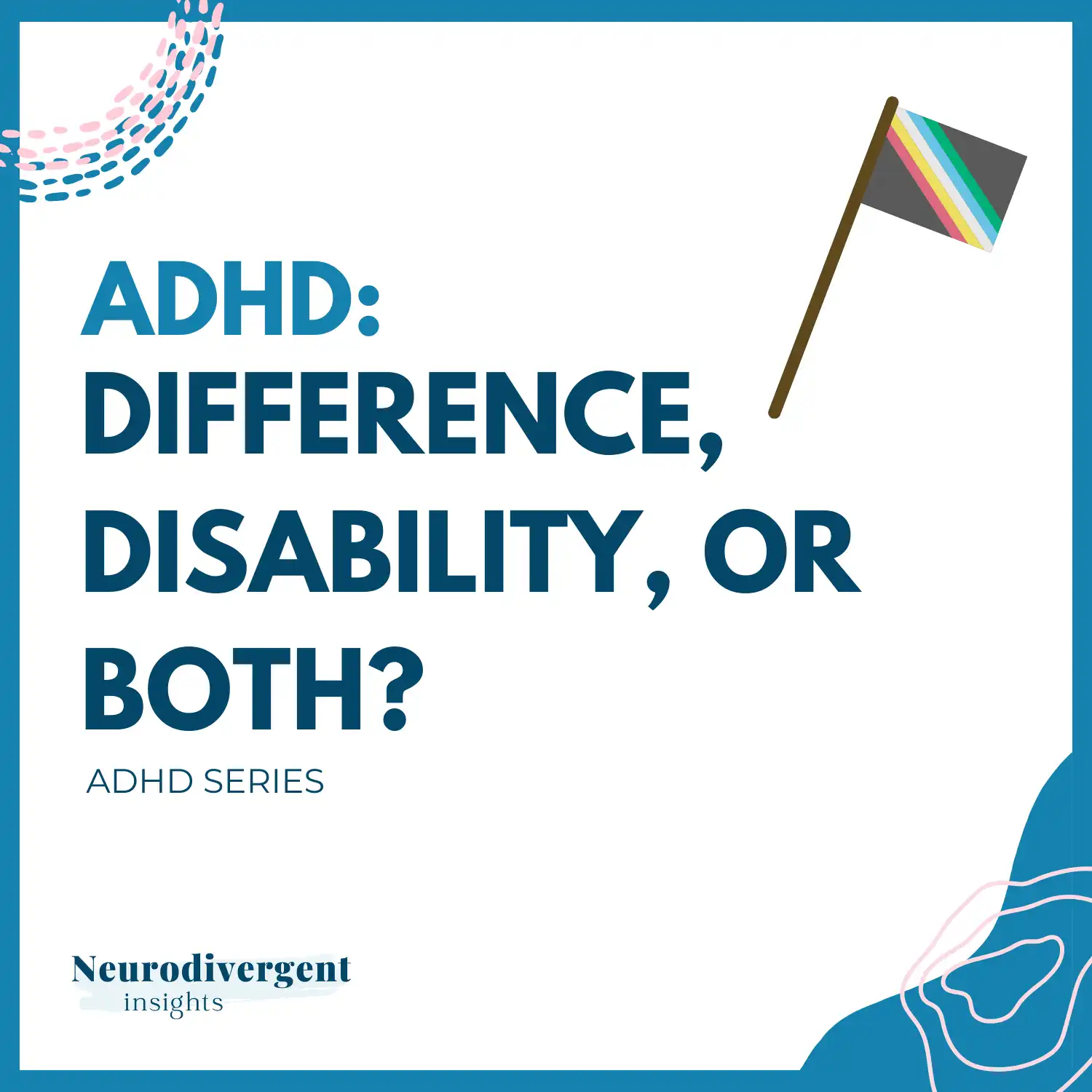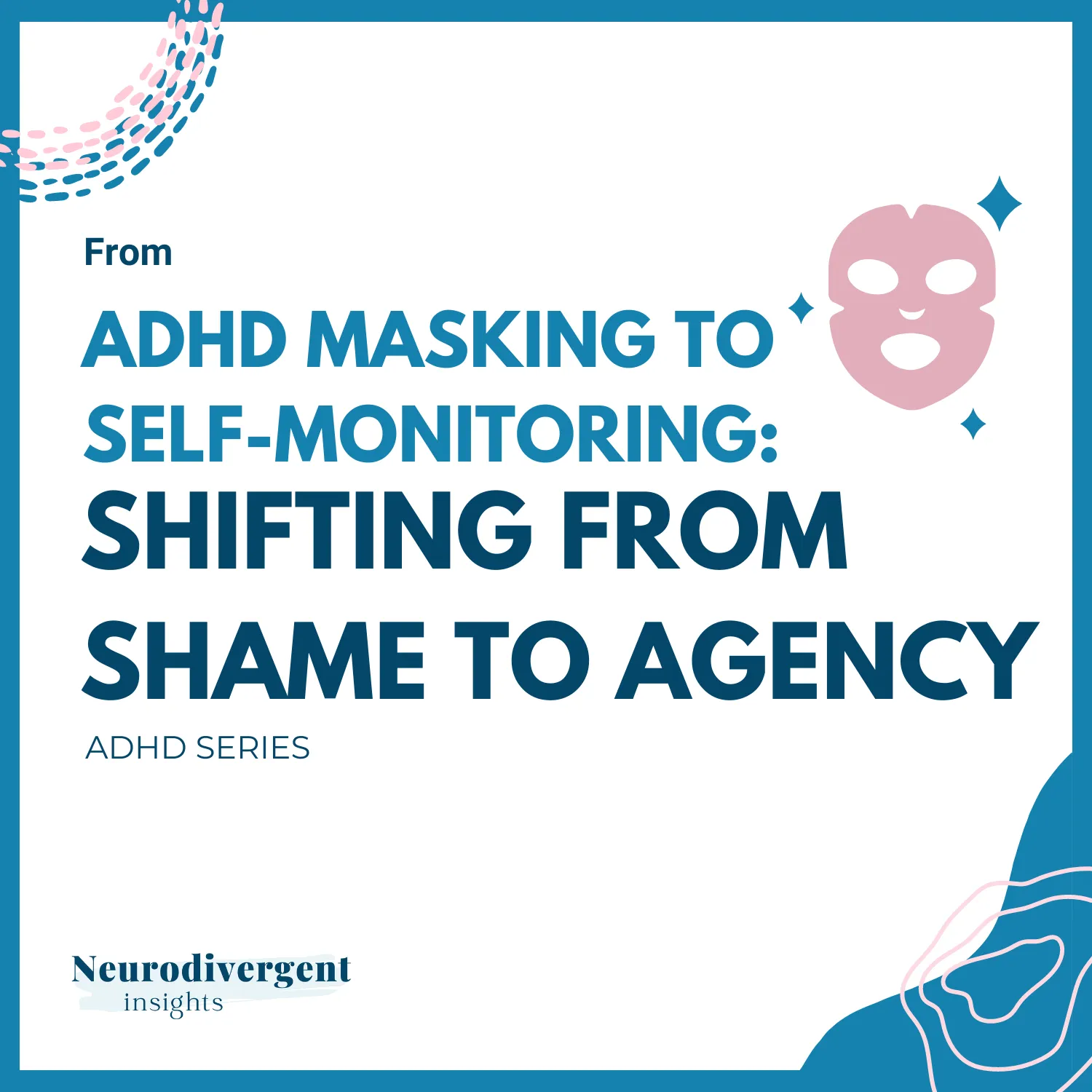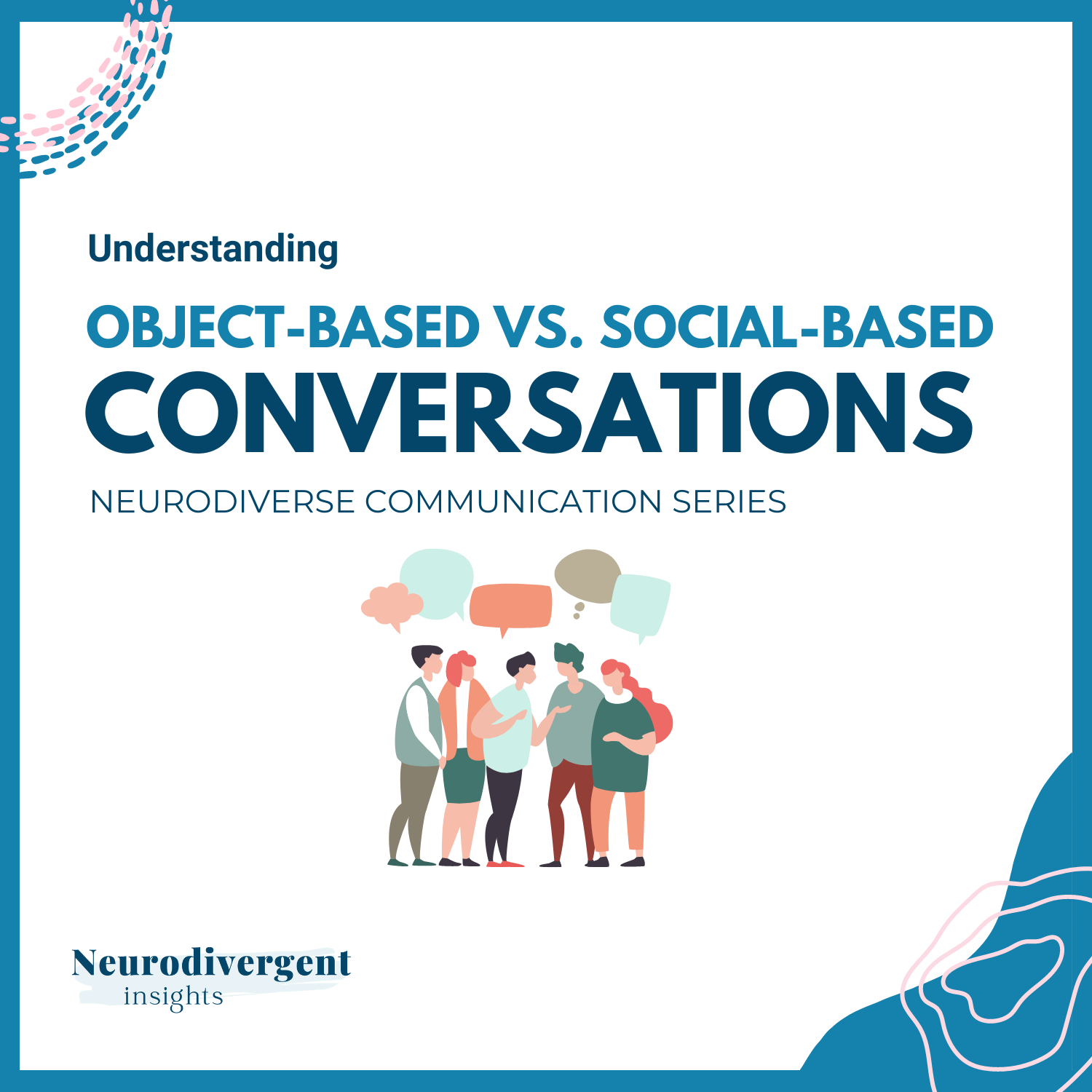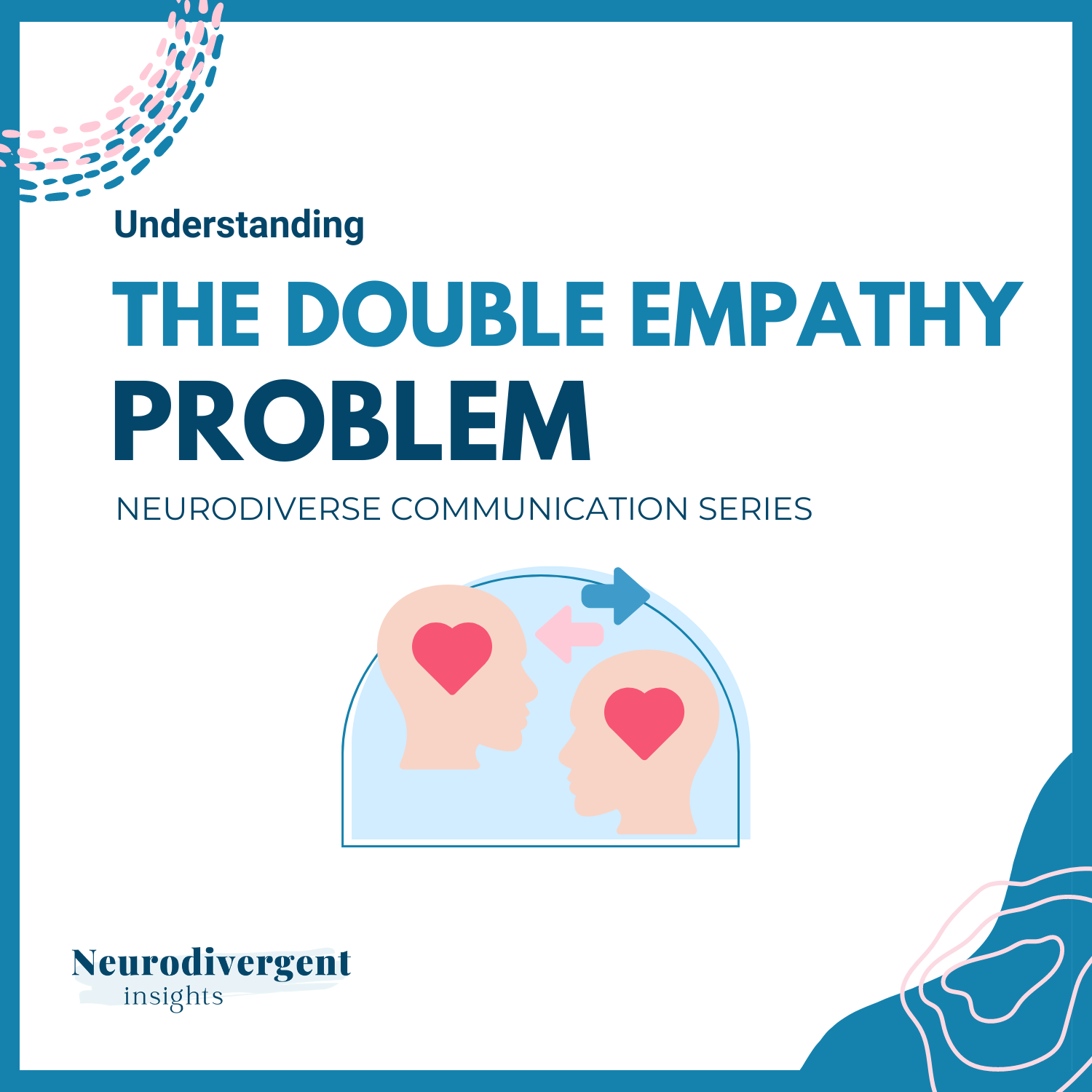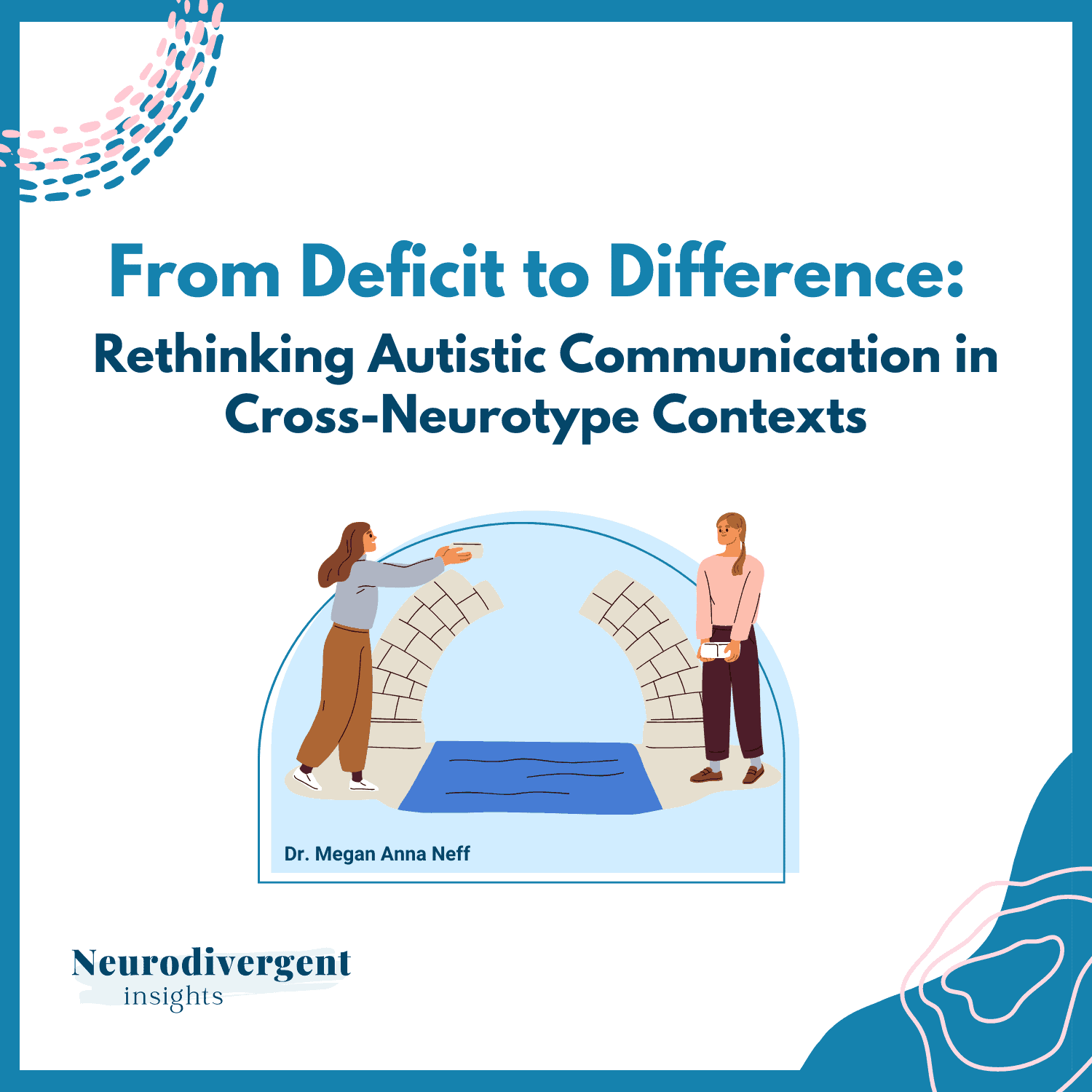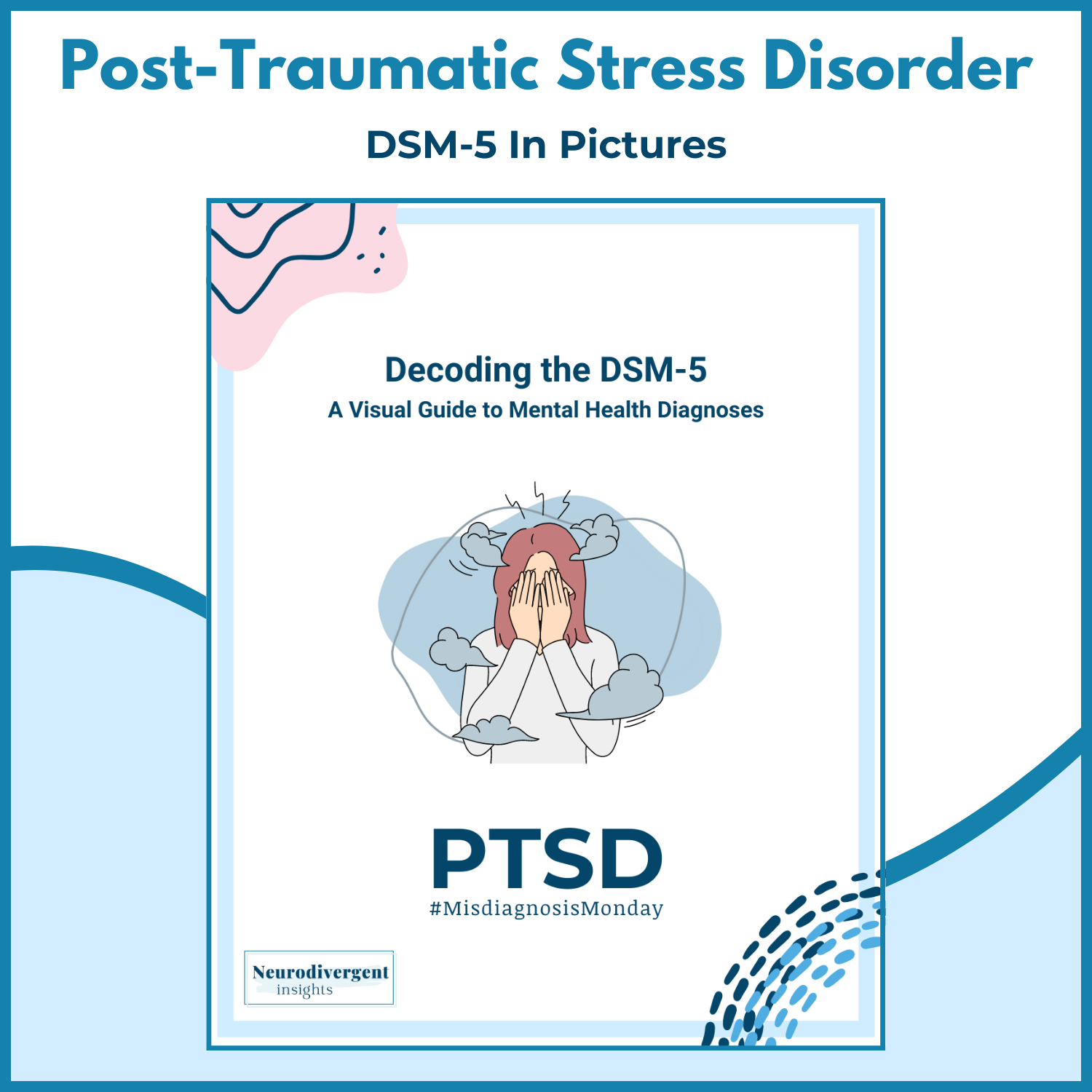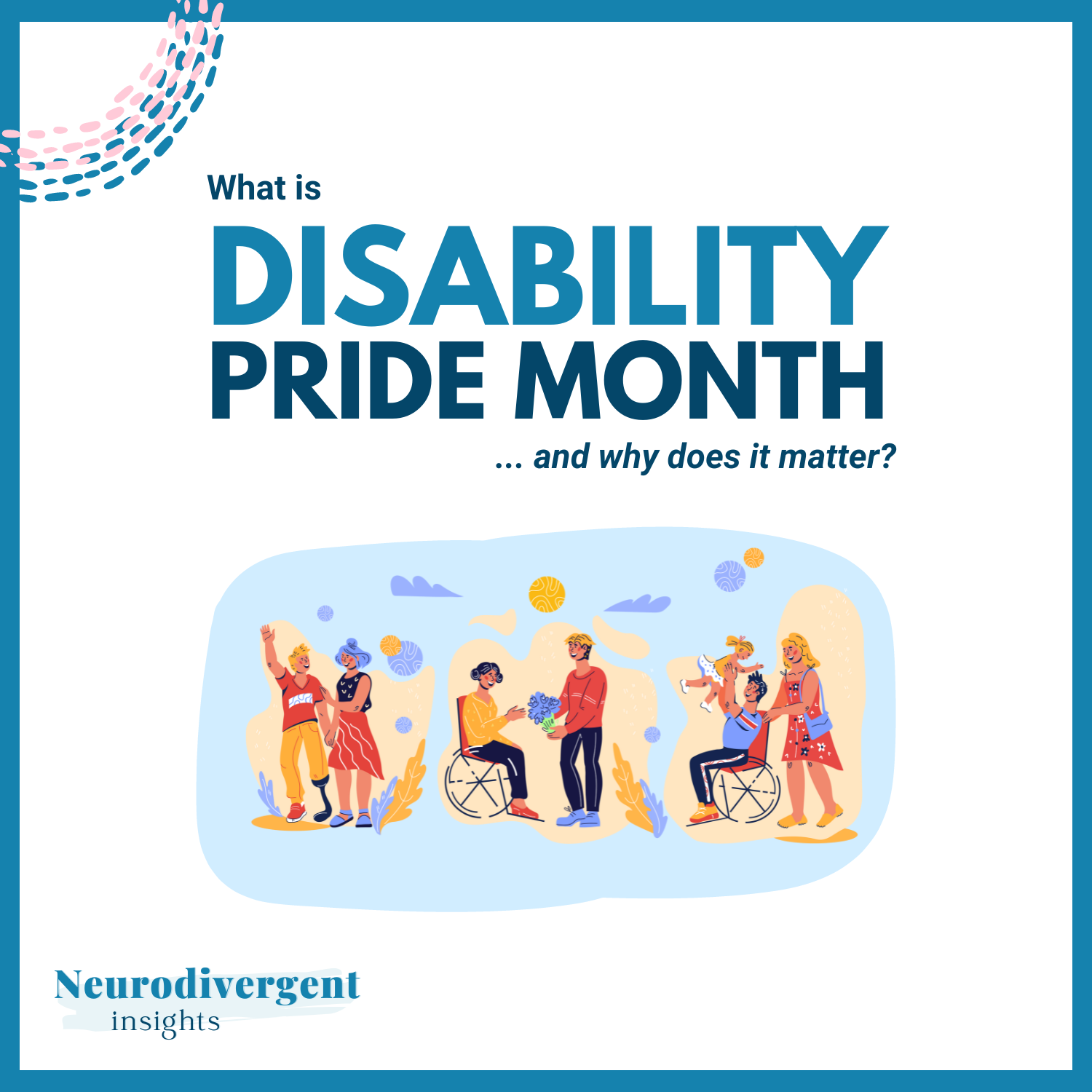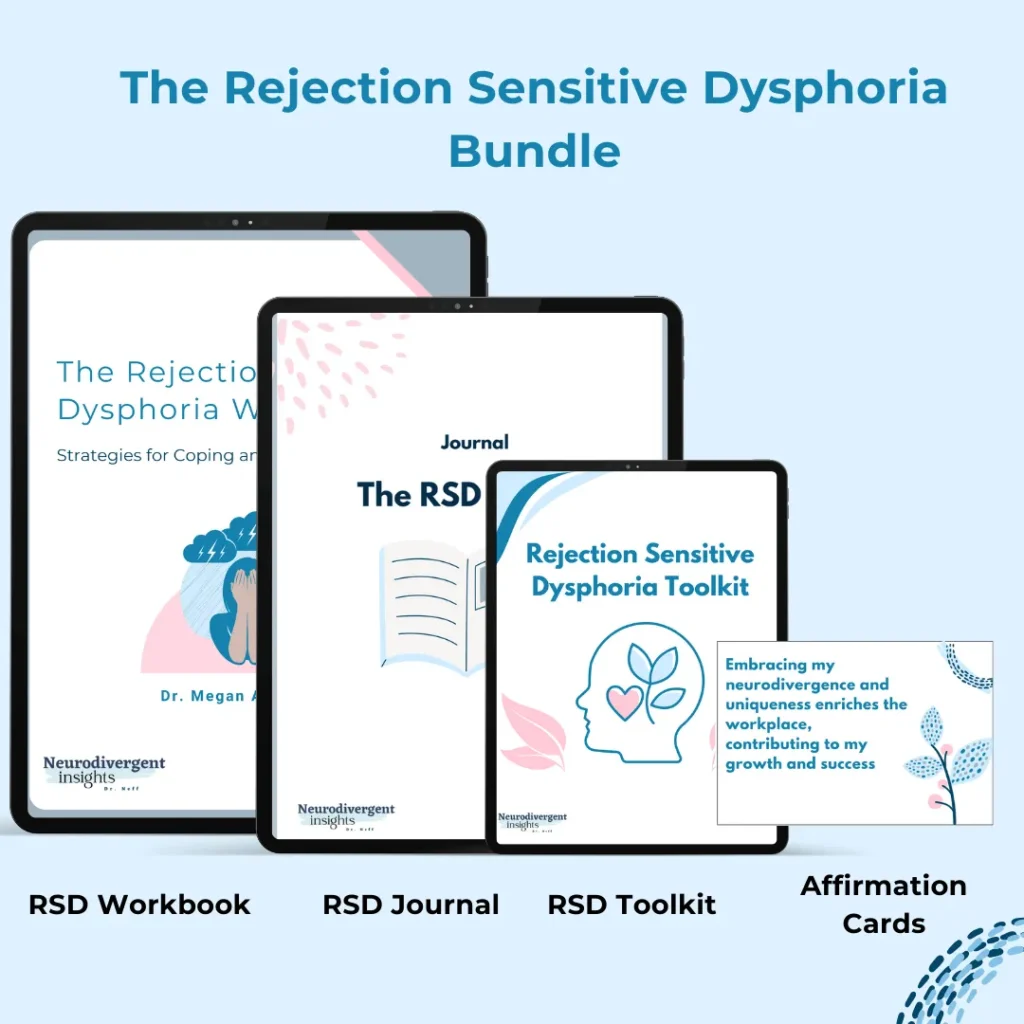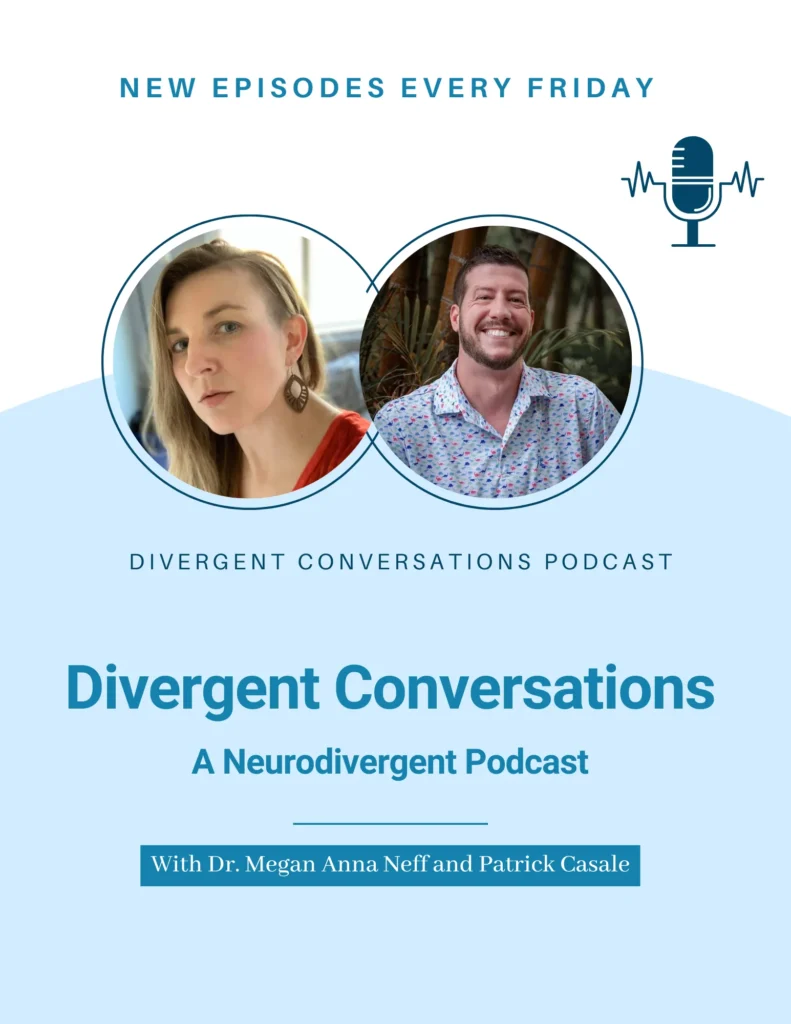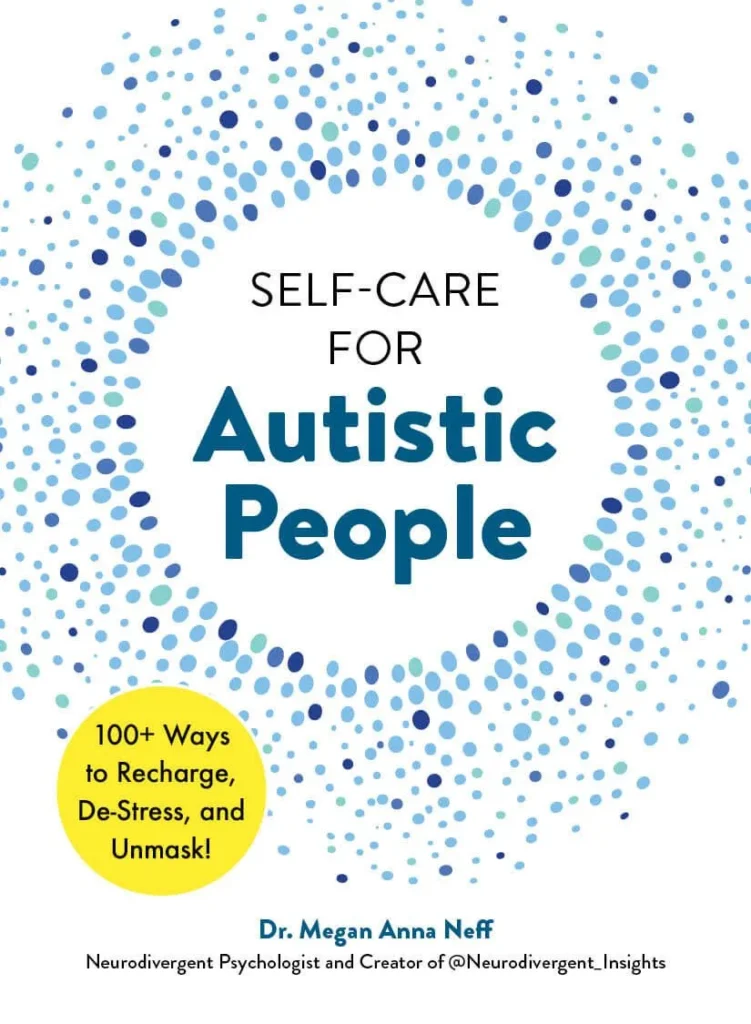
Neurodivergent Notes: Holiday Edition, Part Two. Neurodivergent Notes is a Sunday Newsletter / Essay I send out to readers each Sunday. These essays tend to be more reflective, personal as I chew on current events, psychology and neurodivergence. To sign up for Neurodivergent Notes you can subscribe here.
Last week, we explored the concept of Holiday Syndrome (if you missed it, you can catch it here, or check out the visual summary version on Instagram). I mentioned that over the coming weeks, I’d be diving into strategies for navigating the holiday season. This week, I want to tackle something tricky but something that I suspect hits all of us to some degree: how to identify coping mechanisms that serve you rather than deplete you.
Two weeks ago, I joined Michelle and Monique on the Neurodivergent Women podcast for a rich conversation about self-care. If you’re a podcast listener, this might be a perfect time of year to tune in. We explored the complexities of self-care for neurodivergent people, the limits of the term itself, and the shame that can sometimes creep in when our coping strategies aren’t the “ideal” ones. That conversation is what stirred a lot of my recent reflections on this topic …
Why Coping Feels Trickier During the Holidays
As we discussed last week, the holidays are an emotionally complex time. They can stir up old emotions, unconscious conflicts, and even lead to regression — when we find ourselves slipping into younger, less mature patterns of thinking, feeling, or reacting, often tied to earlier stages of our lives. If you’ve ever thought, “When I’m around my family, I just don’t feel like myself,” you’ve likely experienced this.
This regression makes sense. The holidays often bring us back into family dynamics or environments that shaped us, which can trigger younger versions of ourselves. And with those younger parts of us often comes the coping strategies we have used to survive in the past.
For many of us, those strategies provided short-term relief in difficult circumstances but don’t always serve us well in the present.
The Evolution of Coping Mechanisms
Here’s the thing about coping: most of our strategies were adaptive at some point. They helped us survive, endure, or navigate something difficult. Let me break this idea down through an example:
If someone grew up in an emotionally absent household, where their caregivers didn’t help them validate or process feelings, it might have been adaptive to shut down or numb those emotions. This strategy would have been essential for surviving in an emotionally sterile environment. However, as an adult, that same approach might lead to struggles with building meaningful connections, feeling disconnected from oneself, and relying on coping strategies like substances or other activities that provide faux regulation but are ultimately harmful or misaligned with one’s values.
What was once a creative and adaptive survival mechanism can become maladaptive when carried into a different context. Much of the psychological work we do in adulthood involves recognizing these patterns, understanding their origins, and discerning what continues to serve us compared to what no longer does — so we can begin to let go of what we no longer need.
When evaluating your coping strategies, it’s helpful to keep this broader perspective in mind. Recognizing the origins of our behaviors allows us to approach them with compassion. Because here is the thing about shame: it simply isn’t a good motivator, and it’s all too easy to fall into shame about unfortunate coping strategies we’ve historically used or are currently using. But the shame tends to lead us into hiding and isolation – a breeding ground for more unfortunate coping to take place. So if you’ve noticed some behaviors in yourself lately that you aren’t entirely proud of, instead of following any potential self-shaming spirals, take a step back and ponder the origins of those behaviors – lean in with curiosity and ask – why does this behavior make sense?
Self-Soothing and Self-Nourishing Self-Care
Dr. Daniel Wendler (a fellow Autistic Psychologist), wrote a helpful article on self-care where he breaks it into two categories:
Self-Soothing: Activities that feel good in the moment and help us manage stress (e.g., stimming, sensory self-care, scrolling social media, indulging in comfort foods, or watching Netflix).
Self-Nourishing: Activities that might require more effort but offer long-term benefits (e.g., prioritizing sleep, eating nutrient-dense meals, or moving your body).
During the holidays, many of us lean heavily on self-soothing — and for good reason. The season comes with heightened sensory stress, routine disruptions, and decision fatigue. And yes, we do need self-soothing, especially when our systems are overstimulated.
The challenge is when we default to self-soothing activities that leave us feeling more depleted or dysregulated in the long run. For instance, in past holiday seasons I’ve fallen into patterns of turning to alcohol for a sense of regulation, consuming far too much sugar and gluten (despite knowing how it affects my system), or getting hyperfixated on video games late into the night — all of which throw off my sleep and routines.
This year, I’m trying to approach the season with more intention, asking: what self-soothing practices can I lean on that also nourish me? (or at least don’t deplete me).
Building a Self-Soothing Toolkit
I’ve started assembling a small kit of practices that soothe and nourish me simultaneously. Here are a few that work for me:
Using my Sensate device daily (a vagus nerve stimulator).
Listening to fiction on Audible to wind down as a playful distraction
Reducing my work hours and spending more time watching special interest shows with my children
What’s in your self-soothing toolkit?
A Simple Exercise to Evaluate Your Coping
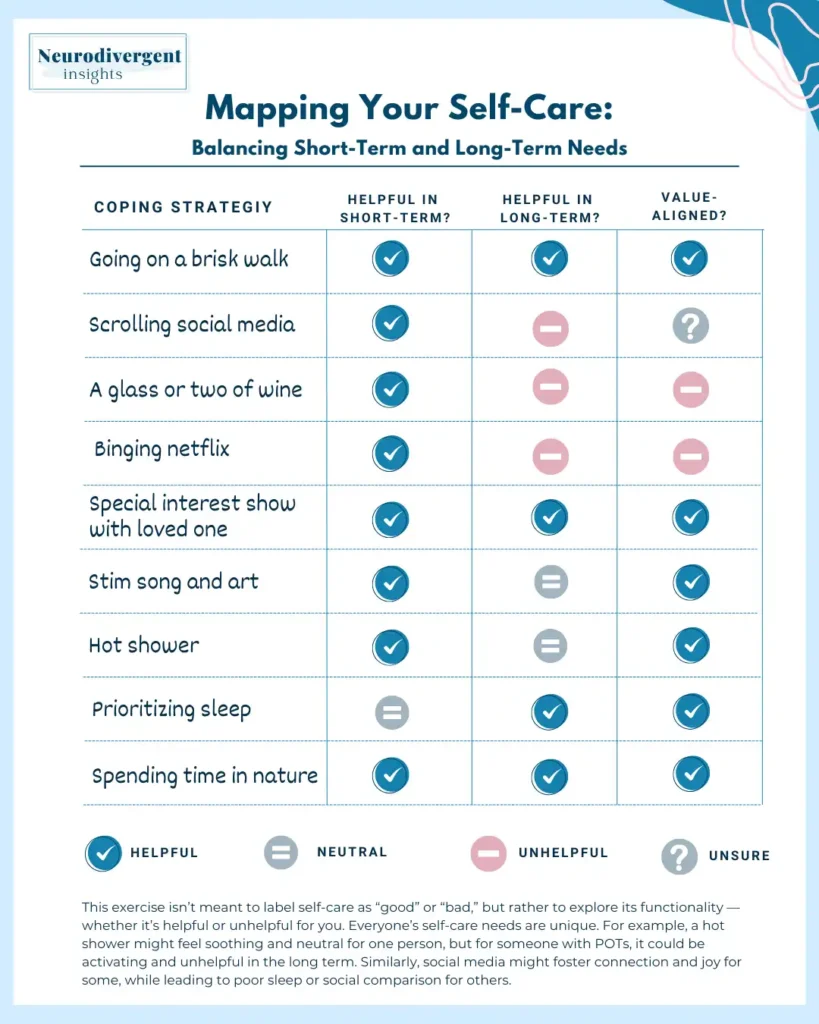
Here’s a pragmatic exercise I shared on the Neurodivergent Women podcast that you might find helpful. Take a piece of paper and divide it into columns:
Helps in the Short-Term (Yes/No): Does this activity soothe or relieve stress in the moment?
Helps in the Long-Term (Yes/No): Does this activity leave you feeling better the next day or in the future?
Aligned with My Values (Optional): Is this activity consistent with the kind of person I want to be?
For example, enjoying a glass of wine might score a “yes” for short-term relief but a “no” for long-term benefits (if it disrupts your sleep or leaves you feeling off the next day). Meanwhile, going for a walk might get a “yes” in both columns, even if it’s harder to motivate yourself to do it.
The goal here isn’t to shame yourself for the activities that only help in the short term. Instead, it’s about bringing awareness to your choices so you can lean into what serves you best.
Mindfulness Amidst the Holiday Chaos
As we discussed last week, the holidays can activate unconscious patterns and stir emotional conflicts. A practice like this — pausing to reflect and evaluate your coping strategies — helps you anchor yourself in the present and make choices from a place of agency. And this certainly isn’t about perfection. It’s about moving through this season with a little more gentleness, awareness, and care.
Next week, we’ll explore practical ways to set boundaries and honor your sensory needs during the holidays. For now, let’s start with compassion: for the parts of ourselves that are struggling, for the choices we’ve made in the past, and for the choices we can make going forward.
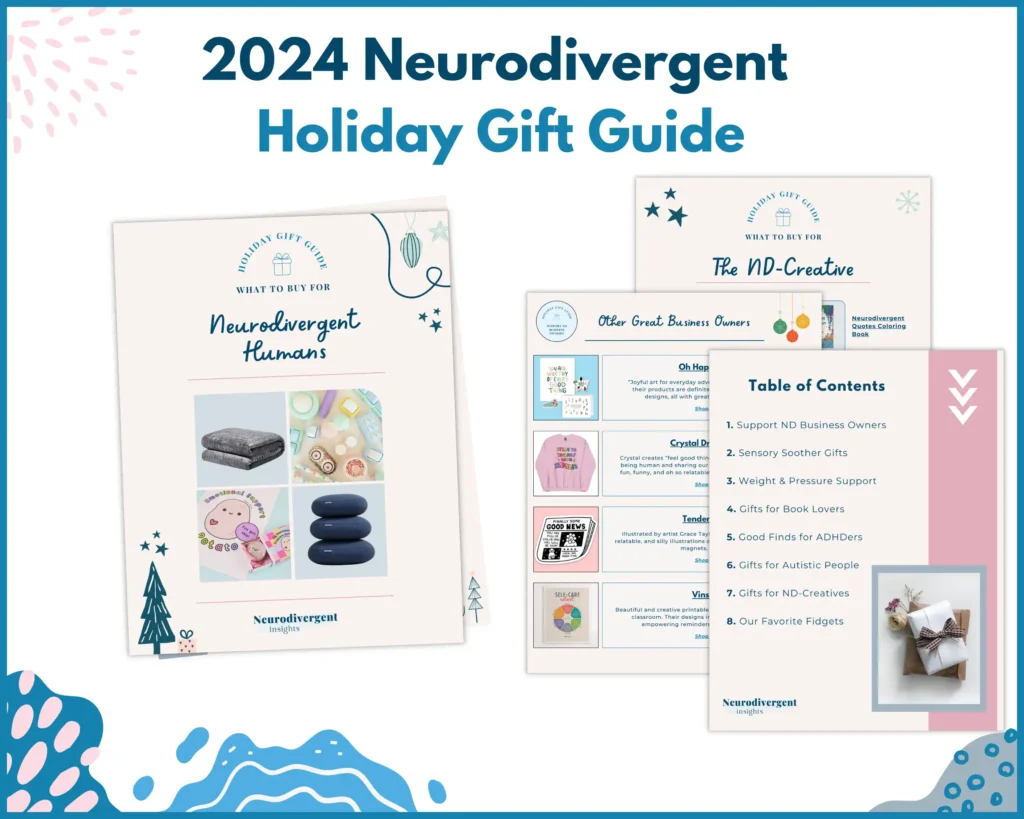
If you’re still looking for Holiday gifts for neurodivergent loved ones, we’ve recently updated our Neurodivergent Holiday Gift Guide. This highlights several ND owned small shops as well as a roundup of our favorite sensory/creative/literary gifts for neurodivergent humans. It includes some affiliate links which helps support the creation of this guide as well as our ongoing work.
